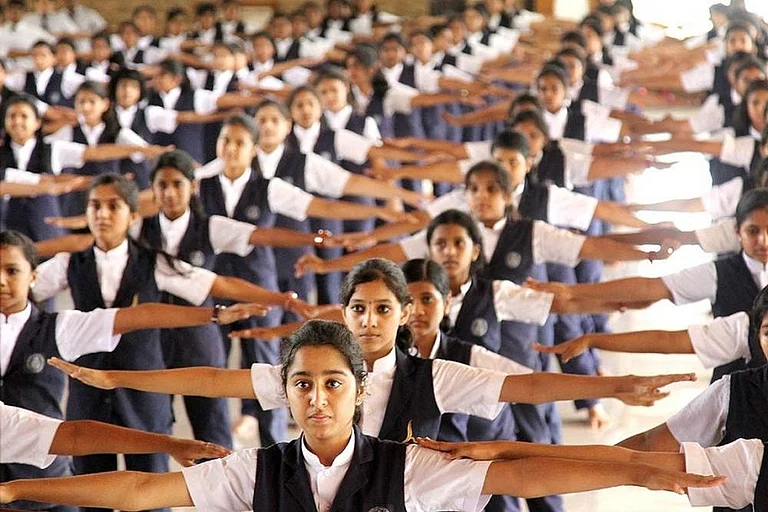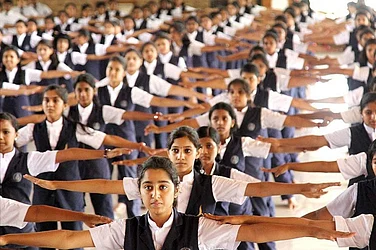While growing up, Ejaz Ahmad, now 23, realised she was not a boy. For her, it was “a living hell.” Her parents watched her every move, especially when relatives pointed how she looked more comfortable with girls than boys, and the local youth would taunt her. “My father was a labourer. My mother is a housewife. They were not able to understand what happened to their son. They did their best to make me behave (like a boy). They took me to peers (‘faith healers’) and shrines. They were pained to see their beloved son as a transgender. It was killing me to see their helplessness,” says Ahmad, his eyes moist.
Trans people form a minority of just around 4,000 in Kashmir. Many of them are shunned by society, live in poverty, face abuse from even their families, and battle stereotypes—like being addressed as sex workers. They work as wedding matchmakers, run make-up trading enterprises and/or perform traditional dances during marriage ceremonies. Very few earn well enough to support their families.
Since childhood, Ahmad didn’t want the life of a typical transgender. “Some people grow older beyond their years. This happened to me after I passed matriculation and joined a higher secondary school outside my locality,” Ahmad says. “Up to Class 10, I studied in a Islamia School in my locality. My teachers were sympathetic and fellow students had somewhat normalised my presence. I didn’t feel left out. But the higher secondary school was like being in a torture cell.”
Ahmad says transgenders are most sensitive in their teens. “They need emotional and financial support, but only get taunts, harassment and abuses. They break down and suffer immense mental trauma.” She has been through the process herself. “I went through all of it in the higher secondary school. Those two years ruined my dream of becoming a doctor. I break down even now when I think about those days. I would have passed the medical entrance examination easily, but I was too concerned about whether I could survive. The only thing that kept me going was my resolve to continue my education.”
Later, Ahmad joined Amar Singh College and opted for Science. “Chemistry was my all-time favourite subject. It was my wonder world, in which I would get lost and forget my worries. Unlike the higher secondary school, in the college, I received ‘a red carpet welcome’. The teachers were surprised to see a transgender student. They showed extra care and helped me with my studies. Something I thought could never happen to me.” Some women teachers even helped her financially. Soon, Ahmad started participating in seminars and conferences and took interest in the issues plaguing the trans community.
It is why she switched to Social Sciences for her post-graduation. “I am doing my MA in Gender Studies, and plan to sit for the IAS exams. Within the bureaucratic community, there is a skewed understanding about issues related to the trans community. We are not a laughing stock and have the right to lead a dignified life. We have a higher rate of school dropouts, and we need proper counselling, free education and books.”
Ahmad has now set up a flower nursery at home that helps earn enough to bear the domestic expenses. “I work a lot on this nursery. My parents have finally realised I am not useless and feel I will be able to do something in life. That is a big solace.” Ahmad has also opened a closed group for the transgender community that has 25 members so far. “We meet once in a while and share our stories. It gives us some relief.”
(This appeared in the print edition as "Being Trans: A Hard-earned Resolve")


























